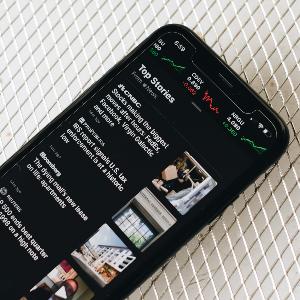Neue Publikation bei Nature Human Behaviour
20.03.2023
Neues Paper zum Thema "Negativity drives online news consumption" bei Nature Human Behaviour veröffentlicht.
20.03.2023
Neues Paper zum Thema "Negativity drives online news consumption" bei Nature Human Behaviour veröffentlicht.

© Lucas Hoang via unsplash
Ein neues Paper zum Thema Negativity drives online news consumption, von Forschern der LMU ( Prof. Stefan Feuerriegel), NYU und anderen wurde bei Nature Human Behaviour veröffentlicht und sorgt für Aufregung in den Medien.
Kuriose Entstehung: Zwei Forscherteams haben parallel am selben Thema geforscht und ihre Papers gleichzeitig bei Nature Human Behaviour eingereicht. So kam die Zusammenarbeit der deutschen Universitäten (u.a. LMU) mit der NYU zustande. Hier geht's zum Blog Beitrag.
Auch die LMU hat in ihrem Newsroom darüber berichtet.
24.03.2023 Click Here If You Want to Be Sad. The internet loves bad news. And that’s bad.
19.03.2023 Bad News: Negativity Increases Online News Consumption
18.03.2023 Erschütternd: Menschen klicken, wenn die Überschrift negative Wörter enthält
17.03.2023 Schlechte Nachrichten werden im Internet öfter angeklickt
17.07.2023 Frieden bringt keine Klicks
17.03.2023 "Bad News" werden häufiger geklickt
17.03.2023 Negative Schlagzeilen werden öfter angeklickt
17.03.2023 Studie bestätigt: Negative Schlagzeilen werden öfter angeklickt
16.03.2023 It’s bad! Awful! Negative headlines draw more readers
Online media is important for society in informing and shaping opinions, hence raising the question of what drives online news consumption. Here we analyse the causal effect of negative and emotional words on news consumption using a large online dataset of viral news stories. Specifically, we conducted our analyses using a series of randomized controlled trials (N = 22,743). Our dataset comprises ~105,000 different variations of news stories from Upworthy.com that generated ∼5.7 million clicks across more than 370 million overall impressions. Although positive words were slightly more prevalent than negative words, we found that negative words in news headlines increased consumption rates (and positive words decreased consumption rates). For a headline of average length, each additional negative word increased the click-through rate by 2.3%. Our results contribute to a better understanding of why users engage with online media.